The camera shopping district in Taipei is situated within the triangle formed by Ximen (西門), the North Gate (臺北府城 北門), and Taipei Main Station (台北車站). The shops are primarily concentrated along Hankou Street (漢口街) and Bo’ai Road (博愛路). This area is fascinating due to its high concentration of specialized shops—a concept that is quite common in Taiwan. Similar examples include Guanghua Digital Plaza (光華商場) for electronics, the tailors in Ximen, wholesale and tool shops on Taiyuan Street (太原路) near Taipei Main Station, handicraft and DIY shops on Tacheng Street (塔城街) near Beimen, pre-owned car dealers on Chengde Road (承德路), and aquarium shops on Minquan East Road (民權東路).
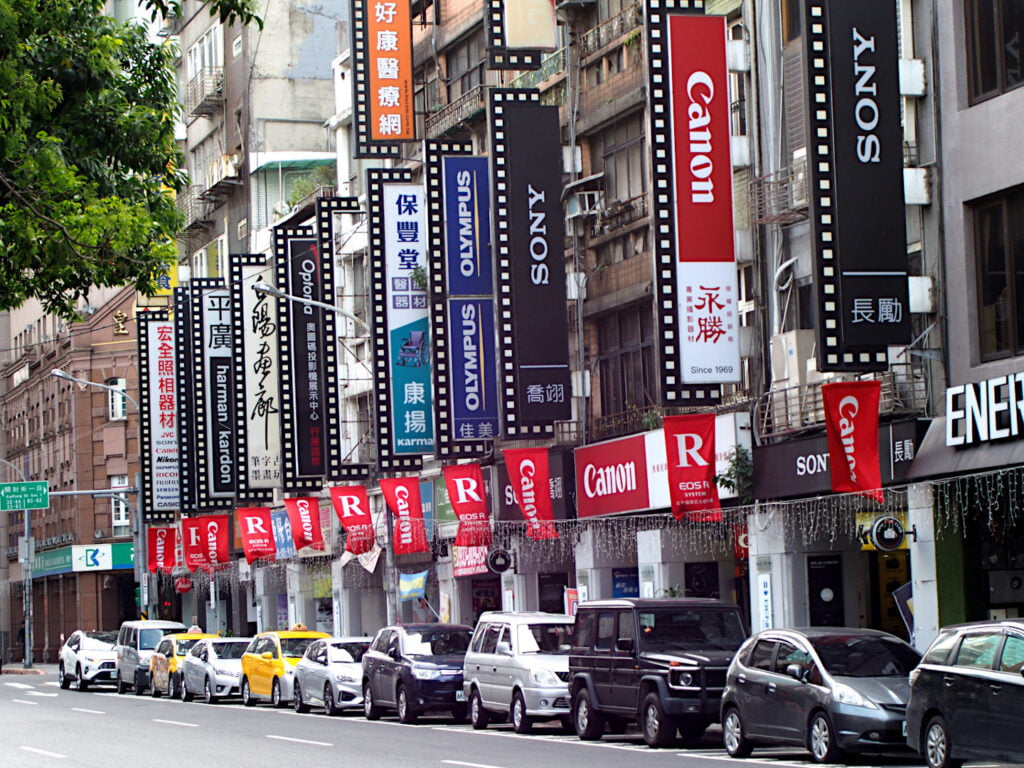
When I first visited the camera street in 2011, I was overwhelmed — it was like a paradise for camera enthusiasts, with countless shops offering gear in one place, something I had never seen before. In Germany, camera shops are usually scattered across the city. Over the years, I frequently returned to the camera street to buy accessories or film and have it developed. However, in the last two years, I’ve noticed a decline: more and more shops have closed and remained vacant, leaving parts of the area looking abandoned and uninviting.
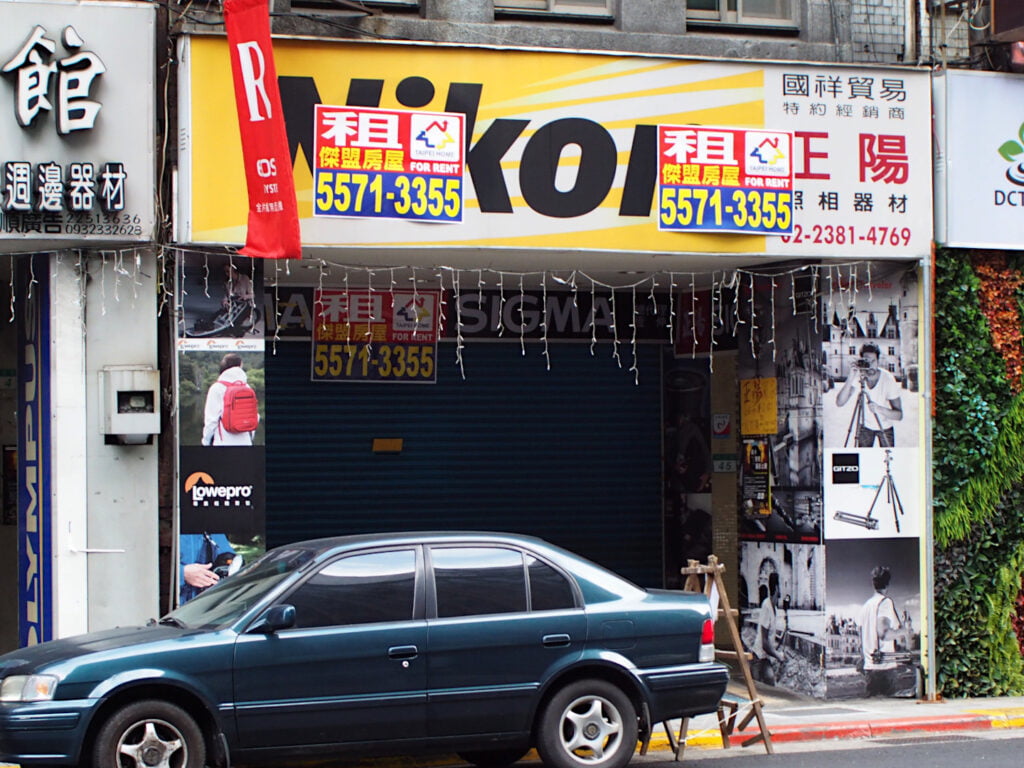
To determine whether this was just a feeling or a real trend, I compared the number of camera shops in 2012 with those in February 2020. I used Google Maps Street View images to count the shops in 2012 and personally counted the existing shops in 2020. While the 2012 count may not be entirely accurate due to incomplete Street View coverage or unidentifiable shops, the trend is clear.
This map shows the location and number of camera shops in 2012:
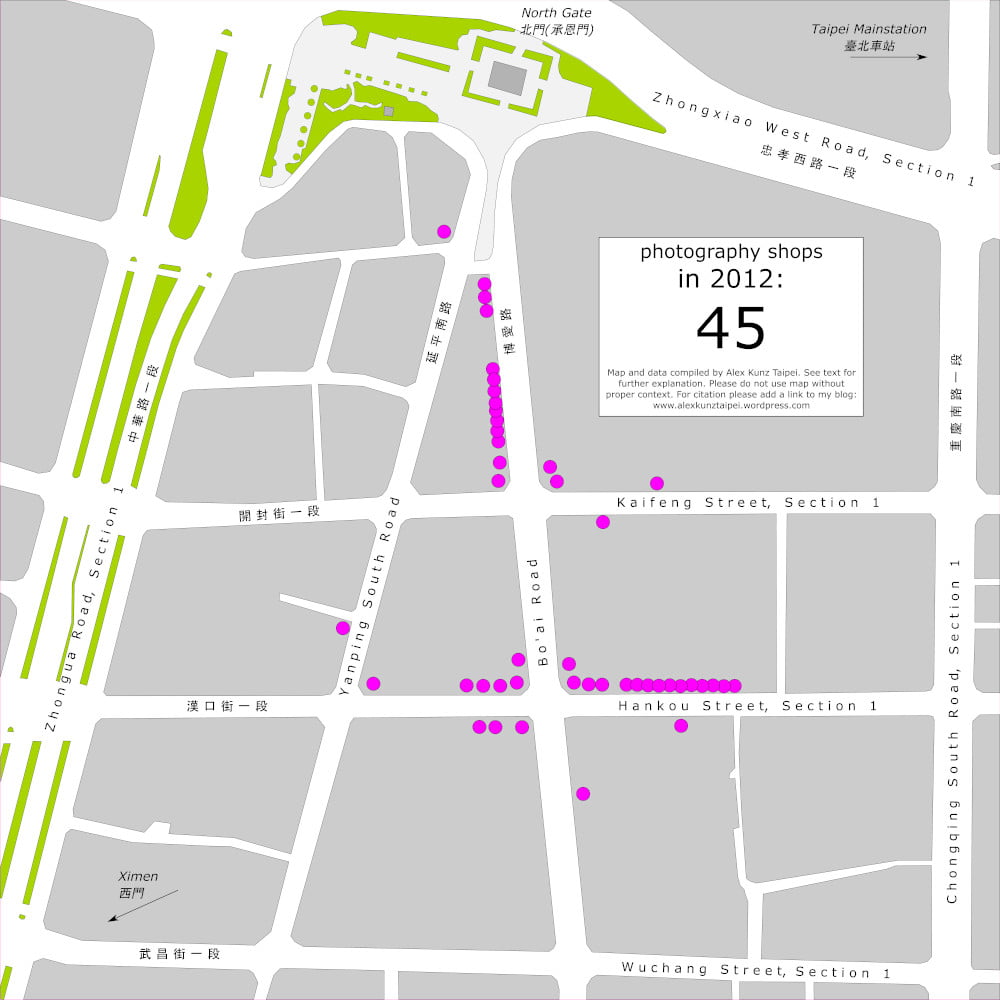
And this map shows the situation in early March 2020:
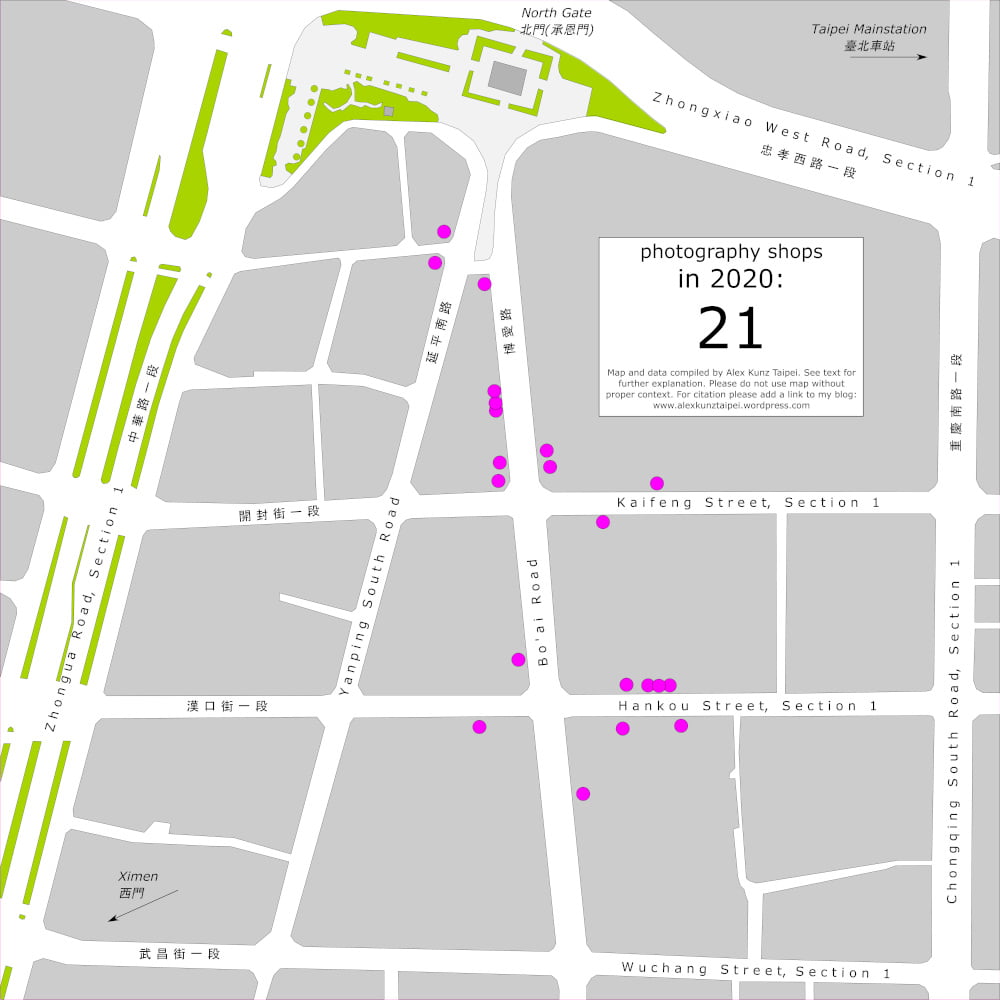
The number of shops decreased from 45 in 2012 to 21 in 2020. Most closures occurred outside of Hankou Street and Bo’ai Road. The decline wasn’t steady – most of the closures happened between 2015 and 2018, during which time the number of shops dropped significantly. Despite the overall decline, new shops continue to open, indicating that some dynamics are still at play.
Why Is This Happening?
I believe a combination of factors, such as rising rents, decreasing camera sales, and a growing preference for online shopping, contribute to the decline. Additionally, based on my observations, I think a poor shopping experience also discourages customers from visiting this area.
1. Increasing Rent
Commercial rents in Taipei have been steadily rising over the years. In some areas, such as Zhongxiao East Road, rents have become so high that even successful shops are forced to close. In the camera shopping district, rents range from 1,400 NT$ to 4,200 NT$ per ping, which means a shop could cost around 80,000 NT$ (~2300 Euro) per month.
2. Decrease in Camera Sales
Global camera sales have been declining for a decade, largely due to the rise of smartphones, which have made separate cameras obsolete for most people. Modern smartphones offer excellent camera performance, rivaling compact cameras and entry-level SLR or mirrorless cameras. Additionally, technological advancements in cameras have slowed, reducing the incentive for owners to upgrade with each new model. High costs may also deter younger consumers from purchasing camera gear.
3. Growth of Online Shopping
According to the article “E-Commerce Shakes Up the Taiwan Retail Sector“, the Taiwanese e-commerce market has grown by 10-15% annually in recent years, and this trend is likely to continue, putting pressure on physical retail stores. The convenience of online shopping—where products are easily purchased and delivered to your door—makes it an attractive option for many consumers.
Interestingly, camera gear prices in Taipei’s camera stores are often similar to, or even lower than, those in Taiwanese online shops. However, I still prefer online shopping for reasons explained below.
4. Poor Shopping Experience
In my personal experience, the camera shopping street, while seemingly a fantastic place to buy camera gear, often proved frustrating. Searching for a specific product required going from shop to shop, repeatedly asking: 你有沒有…? (Do you have…?). Most items aren’t on display, and there are no shelves to browse. Without asking, you won’t access the vast inventory hidden in storage. This contrasts sharply with the big camera shops in Japan, where you can browse freely without being closely observed by staff.
Additionally, I often encountered incompetent staff, which is unacceptable in a specialized shop. Language barriers weren’t the issue – even when I showed the Chinese names and pictures of the items I sought, some staff members were clueless. And these weren’t rare or exotic items but rather very common products. However, a few shops with knowledgeable and helpful staff still exist, and unsurprisingly, they have survived.
Another unpleasant experience was the occasional unfriendly treatment, as if I were viewed merely as a wealthy foreign tourist. The interaction felt transactional and impersonal: “What do you want? Here it is. That much. Pay and leave.”
What Does the Future Hold?
While I can only speculate, I believe the number of shops will continue to decline. One possibility is that only a few large camera shops will survive, with each specializing in a specific product type. Alternatively, the worst-case scenario is that all camera shops will disappear, and the area will evolve into a tourist district with hotels, hostels, restaurants, cafés, and other businesses catering to tourists.
It’s already evident that the number of hostels and hotels in the area has increased over the past few years. The Taipei City government also actively promotes Ximen and Beimen as tourist areas. Given its proximity to Taipei Main Station and popular tourist spots like Ximen, it seems likely that this area will eventually transform into a tourist quarter.
If you like this content and don’t want to miss new blog posts, consider subscribing to our newsletter!
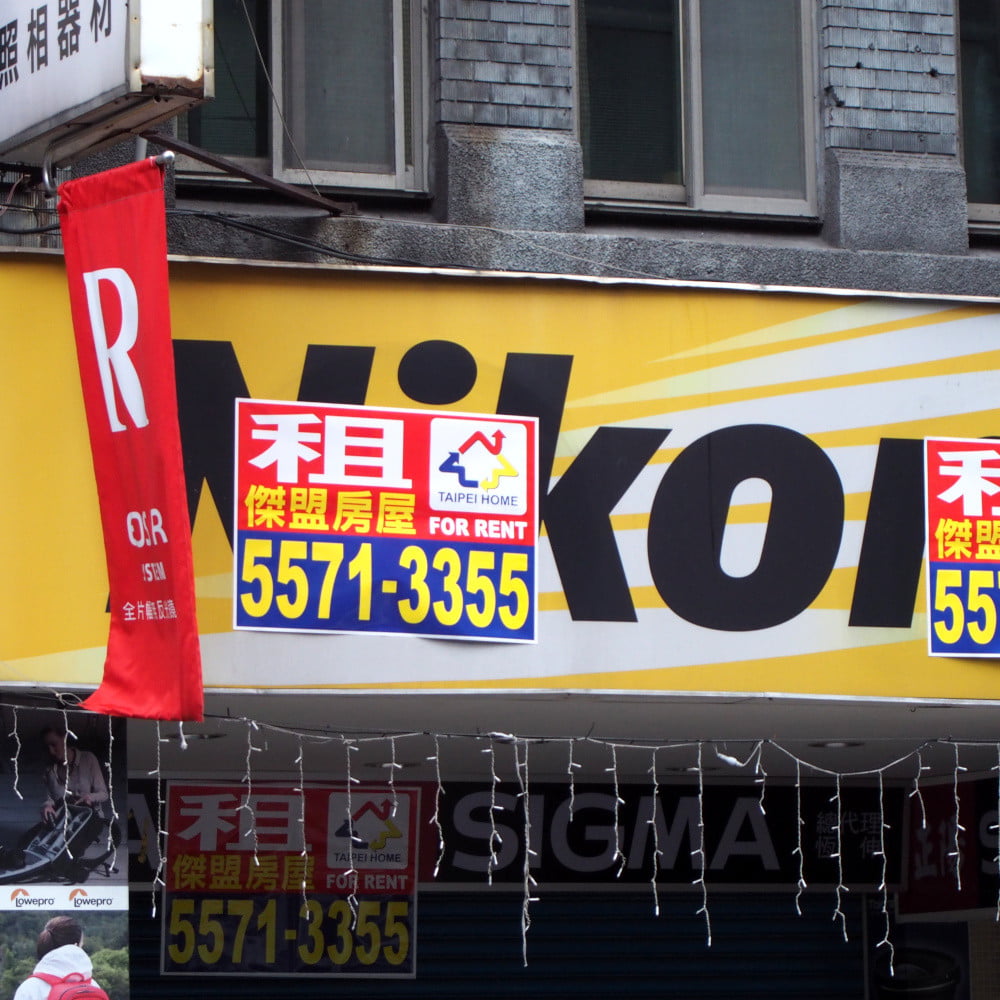
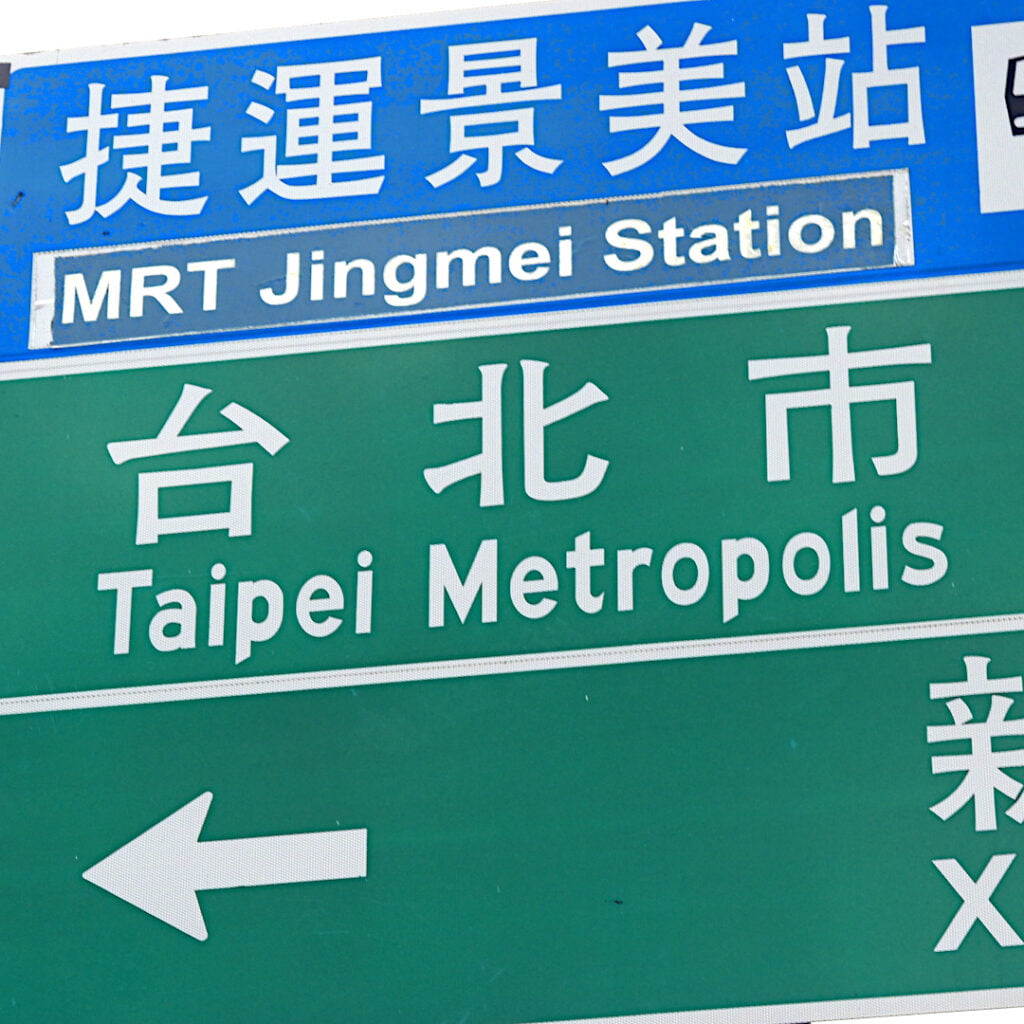

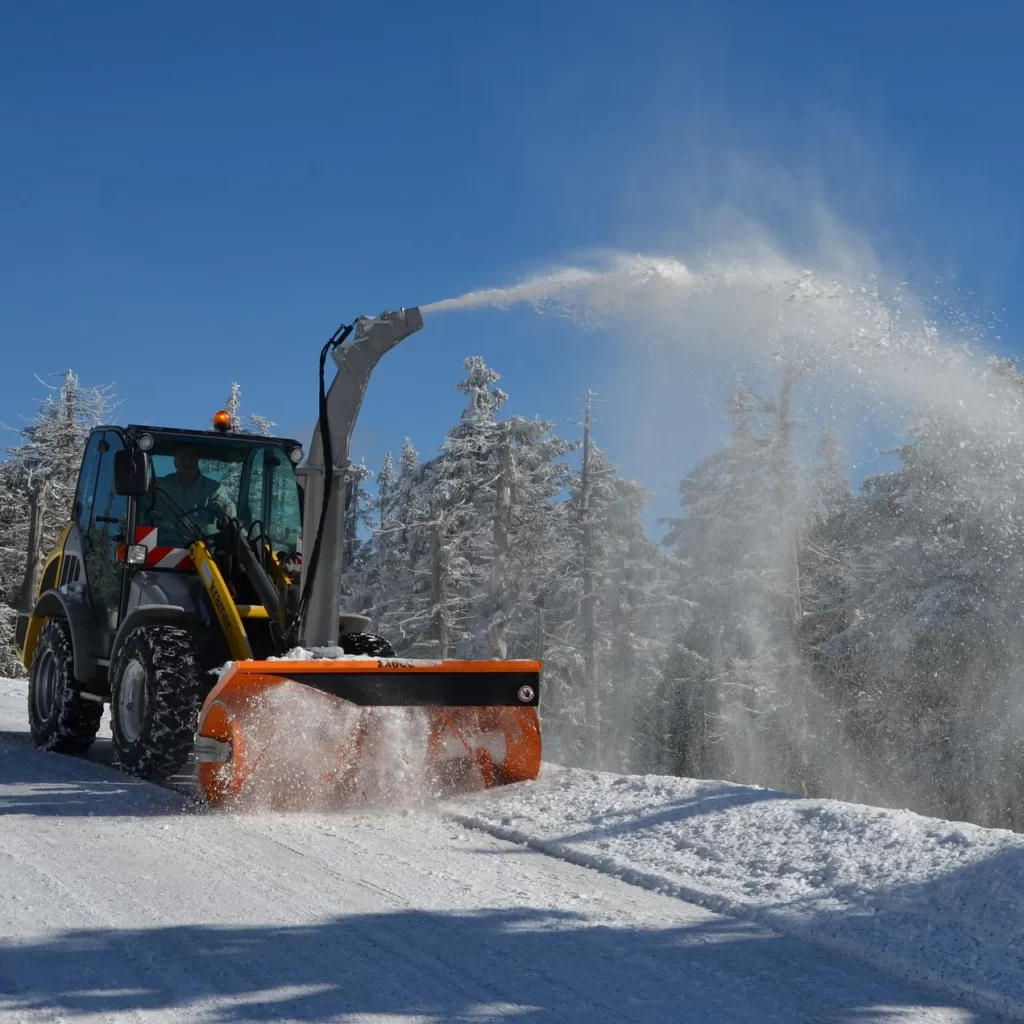
Hi Alex!
I think just a handful will survive and when the rent will go hiher and higher they will eventually move to another area. Gentrification also very common here in Vienna, sometimes in a good way sometimes in a bad way…
Greeting
Peter